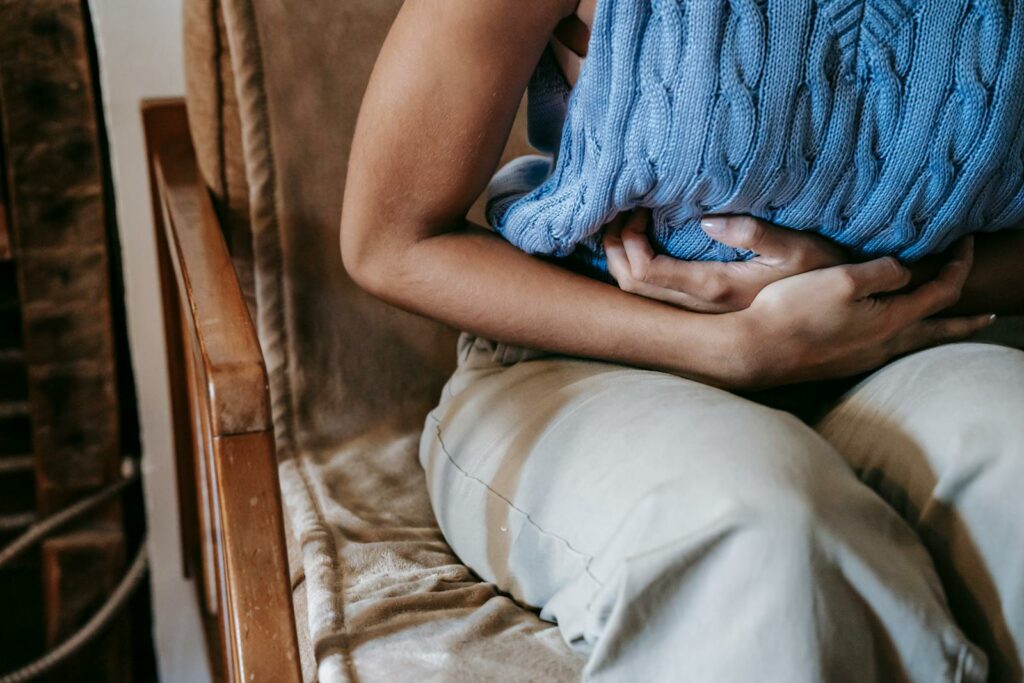IntroductionHormone replacement therapy (HRT) can be really helpful in alleviating menopausal symptoms and has helped women all over the world feel more comfortable during this period of their lives. While it may not be recommended for some women due to medical reasons, some women don’t tolerate it well or simply choose not to have it. Fortunately, instead …
Introduction
Hormone replacement therapy (HRT) can be really helpful in alleviating menopausal symptoms and has helped women all over the world feel more comfortable during this period of their lives. While it may not be recommended for some women due to medical reasons, some women don’t tolerate it well or simply choose not to have it. Fortunately, instead of HRT, there are other ways through which there can be relief from these discomforting menopausal symptoms. If you have been looking for a way out because you are unable to use the conventional HRT, count yourself lucky as you are in the right place.
This article will educate you on the alternatives to HRT in the management of hot flushes and night sweats, vaginal dryness and painful sex, mood disturbances and bone fragility, associated with menopause. You would also learn their common side effects and circumstances to avoid their use.
Why Alternatives to HRT
As mentioned earlier, in addition to personal preferences, certain medical conditions may deem the use of HRT not advisable. These conditions include: Ovarian cancers, breast cancers (whether current or past), severe liver or kidney disease, recent stroke, recent heart attack, uncontrolled hypertension, and undiagnosed vaginal bleeding.
Are Alternatives Safer and More Efficacious?
Some people firmly believe that alternatives to HRT are safer, devoid of side effects, primarily due to their “natural” composition. While there may be some truth to this notion, especially with the herbal\plant alternatives, insufficient research has been conducted on many of these natural remedies.
There is limited knowledge regarding their proper dosing, and there is a potential for interaction with other medications. Therefore, it is crucial to consult with your doctor before considering the use of any such remedies.
Alternatives to Hormone Replacement Therapy
Lifestyle Modifications
Physical activities for the management of menopause
The importance of regular physical activity is enormous in coping with menopausal symptoms. Obesity/ being overweight has been known to worsen the frequency, duration and intensity of hot flushes. Physical activity not only helps relieve these symptoms but also protects against other diseases like heart disease, hypertension and diabetes that can further complicate menopause. Regular physical activity has been known to relieve hot flushes, night sweats, low moods/depression, migraines, vaginal dryness and painful sexual intercourse seen in menopause.
Not only does it help relieve the physical symptoms, it also helps with the mental symptoms like anxiety, depression, low moods, and irritability associated with menopause. Aim for at least 30 minutes of moderate intensity exercise, 3-5 times a week.
What are the physical activities helpful in menopause?
If you desire to relieve the symptoms of menopause, your exercise routine should include a combination of:
- Cardio exercises like jumping, jogging, and mountain climbing.
- Resistance training exercises including sit-ups, push-ups, leg raises, squats and planks.
- Flexibility and balance exercises including Yoga, Tai Chi and Pilates.
The importance of lifestyle and dietary changes is critical in pulling through menopausal symptoms. This holds true whether or not the woman will be on HRT. They include:
- Cutting back on caffeine intake
- Reducing the consumption of spicy foods
- Reducing alcohol consumption
- Wearing clothes made with lightweight materials.
- Sleeping in well-ventilated and cool rooms
- Cessation of smoking
- Reduction of stress
- Increase your intake of liver, egg yolks, oily fish, dairy products, green vegetables, tofu, whole grains, and nuts.
- Embrace green spaces: Engaging in activities like walking, exercising, and spending time outdoors can significantly benefit mental health and uplift mood.
Plant and Herbal Remedies
Below are plant and herbal remedies thought to help with menopausal symptoms. They are useful in the management of hot flushes and night sweats. Most of these remedies have been shown to contain Phytoestrogens. Phytoestrogens are plant-derived oestrogen-like molecules, found in high levels in some foods including flax seed, soybean, linseeds, pumpkin seeds, green beans, celery, sesame seeds and tofu diet, are effective in management of hot flushes. Apart from plants, supplements rich in isoflavones – a type of phytoestrogens – is also a common source for phytoestrogens.
However, there is not enough evidence on the effects of these remedies and not enough research has been done on some of them in terms of dosing, interactions, and side effects, though many women have found them helpful. Before trying these, it’s important to consult with healthcare professionals and experts.
Wild yam: The roots and tubers of wild yam contain phytoestrogens It’s believed that it may help alleviate some menopausal symptoms like hot flushes and vaginal dryness by weakly mimicking oestrogen’s effects.
Black Cohosh: This is a flowering plant native to North America. It has a long history of use in traditional Native American medicine. It is employed in the preparation of over-the-counter medications e.g Remifemin, MonoHerb – used in managing menopausal symptoms. People with liver diseases should avoid the use of black cohosh, as it has been known to cause liver inflammation. It is also not recommended in women with past or present history of breast cancer.
Red clover: Red clover is a small flowering plant eaten as a legume and found in supplements for women’s health. It contains phytoestrogens similar to oestrogen and grows in Europe, central Asia, and northern Africa. Avoid use for women with breast cancer history.
Evening primrose oil: The oil extracted from evening primrose seeds is rich in gamma-linolenic acid (GLA), an essential fatty acid. It’s believed that GLA may help regulate hormone levels and reduce inflammation, thus providing relief from menopausal symptoms. While some women report benefits from using evening primrose oil for menopausal symptoms, scientific evidence supporting its effectiveness is limited and mixed.
Sage: It is a perennial herb with woody stems and greyish-green leaves that are slightly fuzzy. Sage plants typically grow small, purple, pink, or white flowers in clusters. The leaves of the sage plant are commonly used both fresh and dried in cooking and herbal remedies. Sage has been traditionally used to reduce hot flashes and night sweats associated with menopause. Avoid this if you are hypertensive or on tamoxifen for breast cancer.
St John’s Wort: It is an herb that has been used for centuries as a traditional remedy for various ailments, including mood disorders like depression and anxiety. Some people also use it to alleviate symptoms associated with menopause, such as mood swings and anxiety. St. John’s wort contains several compounds, including hypericin and hyperforin, which are believed to have antidepressant and mood-stabilising effects. However, scientific evidence supporting its effectiveness for menopausal symptoms is limited and mixed. It can interrupt the action of Tamoxifen, hence do not use if taking tamoxifen for breast cancer treatment.
Dong Quai: is an herb native to China, Japan, and Korea. It has been used in traditional Chinese medicine for centuries, primarily for women’s health issues, including menstrual problems and menopausal symptoms. It is believed to contain compounds that may help regulate hormone levels and improve blood circulation, which could alleviate some of these symptoms. It should not be used with warfarin as that can cause bleeding.
Alternatives to HRT in management of mood problems
Cognitive behavioural therapy CBT improves anxiety and low moods associated with menopause (and hot flushes to an extent). CBT techniques can be a combination of sleep hygiene, relaxation processes, and+ taking a positive healthy approach towards menopause.
Acupuncture: Acupuncture has been known to significantly reduce the experience of night sweats and hot flushes. The technique increases the level of endorphins in your brain, hence regulating your temperature control.
Aromatherapy: Concentrated essential oils from aromatic plants can help relieve the anxiety, restlessness and low moods caused by menopause.
These oils can be used for massage or in the bath.
Examples: Chamomile, bergamot, clary sage, lavender and geranium
Reflexology: A therapy that involves stimulating, gently massaging and applying pressure on the extremities (hands and feet).
Agnes castus: Aka chaste tree can be used for mood swings and low moods of menopause.
St John’s Wort: Inhibit neurotransmitters in the brain, hence reduces anxiety and depression.
Alternatives to HRT in management of vaginal dryness and painful sex
Vaginal lubricants/moisturisers
- Glycerin mineral oil- polycarbophil suppositories: Are commonly used by many women as polycarbophil helps retain moisture. They combine glycerin and mineral oil for moisture.However, it’s worth noting that there is some caution regarding mineral oil for vaginal use, as it may potentially cause pH imbalances and pose infection risks for some women.
- Hyaluronic acid-based vaginal suppositories: Hyaluronic acid-based vaginal suppositories are great for keeping moisture in and are generally safe for vaginal health.
- Natural products including vitamin E capsules, coconut oil, and soy-based creams: Vitamin E keeps things moist and brings in antioxidants, while coconut oil is a go-to for many but it’s important to note that oil-based lubricants can weaken latex condoms and increase the risk of condom breakage. Soy-based creams might help with moisture, so skip them if you’re allergic to soy.
When picking a vaginal lubricant or moisturiser, be mindful of irritants like parabens, phthalates, sulphates, lanolin, fragrances, alchohol, paraffin, and petroleum. If a product causes a burning feeling, try a different brand, as it may take some experimentation to find what’s best for you. There is a plethora of non-hormonal lubricants in the market you can choose from to alleviate the painful sexual experience of menopause. If you’re unsure, consult with a healthcare provider for personalised advice.
Alternatives to HRT for bone health
- Phytoestrogen: Foods rich in phytoestrogens can raise the level of bone mineral density. Thus, preventing the bone fragility that comes with menopause.
- Vitamin Supplements: Supplements with calcium, magnesium, selenium, vitamin D and K can help with prevention of osteoporosis.
Conventional Medications
While not considered natural remedies, the following conventional medications are known to alleviate symptoms like hot flushes and night sweats for individuals who opt out of hormone replacement therapy. However, it’s crucial to consult your healthcare provider before starting any of these medications.
Antidepressants: They work by altering neurotransmitter levels in the brain, helping to regulate mood and reduce the frequency and severity of symptoms associated with menopause.
- Selective serotonin reuptake inhibitors (SSRIs) such as Paroxetine, Citalopram, Escitalopram, Fluoxetine, Sertraline. Caution: Avoid fluoxetine and paroxetine if you’re taking tamoxifen for breast cancer as they can hinder the action of tamoxifen.
- Serotonin-noradrenaline reuptake inhibitors (SNRIs) such as Venlafaxine and Desvenlafaxine. They can be used in women taking tamoxifen.
Anti-seizure medications (Gabapentin, Pregabalin): These can help manage menopausal symptoms especially hot flashes and night sweats by stabilising nerve activity and reducing the intensity and frequency of these symptoms. Side effects: weight gain, sleepiness, dizziness and dry mouth.
Muscle relaxant (Oxybutynin): Oxybutynin is a medication primarily used to treat overactive bladder and urinary incontinence. However, it can also be prescribed off-label to manage menopausal symptoms such as hot flashes and night sweats. Oxybutynin works by reducing the activity of certain nerves, which can help decrease the frequency and severity of hot flashes.
Side effects: dry mouth, dry eyes, headaches and stomach pain.
Antihypertensive (Clonidine): Although mainly used to treat hypertension, Clonidine works by affecting certain neurotransmitters in the brain, which helps regulate body temperature and reduce the frequency and severity of hot flashes associated with menopause.
Adverse effects: Dizziness, sedation, difficulty with sleeping, constipation
Caution: Cannot be used by women with low blood pressure.
Tibolone: Tibolone is a synthetic steroid hormone used primarily for hormone replacement therapy (HRT) in postmenopausal women. Despite being a form of HRT, tibolone is often considered separately due to the distinct way it works. It acts differently from traditional HRT by selectively activating oestrogen receptors in various tissues, potentially reducing some associated risks. It can help alleviate menopausal symptoms such as hot flashes, vaginal dryness, and decreased libido by mimicking the effects of oestrogen, progesterone, and testosterone in the body. Additionally, tibolone may help prevent bone loss and reduce the risk of fractures associated with osteoporosis.
Caution: Do not use if there is history of breast cancer
Conclusion
Lifestyle and dietary changes, physical activities, complementary and supplementary medicines can be employed in the management of perimenopausal and menopausal symptoms in women not desirous of HRT use or in those in whom HRT may be contraindicated.
This is important because menopausal symptoms can be debilitating and affect the quality of life of those who experience them.
While these alternatives can be helpful, it is important to remember that their safety and efficacy still require more study.
Discuss with your GP or gynaecologist on the best therapy and dose for you.
Frequently Asked Questions (FAQs)
Q: I am still very young. Is it possible that what I am experiencing is menopause?
A: There are different symptoms of menopause. In different people, these symptoms start at different ages and varying severity.
To know more about them, click here
Q: I wanted to start HRT treatment but I am too scared because I have heard a lot of bad stuff about it
A: HRT can have side effects, no doubt. However, there are a lot of myths about it that are not true. Click here for a myth-busting guide
Disclaimer: The information provided regarding medications and remedies, including but not limited to tibolone, hormone replacement therapy (HRT), and herbal supplements, is for educational purposes only. These treatments should not be initiated or discontinued without the guidance of a qualified healthcare professional. Individual responses to treatments may vary, and professional advice should be sought before starting any new medication or supplement regimen.
References
https://obgyn.onlinelibrary.wiley.com/doi/full/10.1111/j.0001-6349.2004.00560.x
https://www.nhs.uk/medicines/hormone-replacement-therapy-hrt/alternatives-to-hormone-replacement-therapy-hrt/
https://www.ncbi.nlm.nih.gov/pmc/articles/PMC4170410/
https://www.nhs.uk/medicines/hormone-replacement-therapy-hrt/alternatives-to-hormone-replacement-therapy-hrt/herbal-remedies-and-complementary-medicines-for-menopause-symptoms/
https://patient.info/womens-health/menopause/alternatives-to-hrt
https://www2.hse.ie/conditions/hrt/alternatives/
https://www.news-medical.net/health/Hormone-Replacement-Therapy-(HRT)-Alternatives.aspx
https://revitalizeyoumd.com/safest-natural-female-hormone-replacement-therapy/
https://pubmed.ncbi.nlm.nih.gov/10504933/
https://www.uptodate.com/contents/non-estrogen-treatments-for-menopausal-symptoms-beyond-the-basics
https://www.shecares.com/hormones/medical-treatments/hrt/alternatives
https://www.sciencedirect.com/science/article/pii/S0957584705000508
https://www.menopausecliniclondon.co.uk/non-hrt-alternatives
https://www.youtube.com/watch?v=SFFfj_LP0l8&t=2s
https://www.youtube.com/watch?v=MNUrVXkOHX4&t=14s






